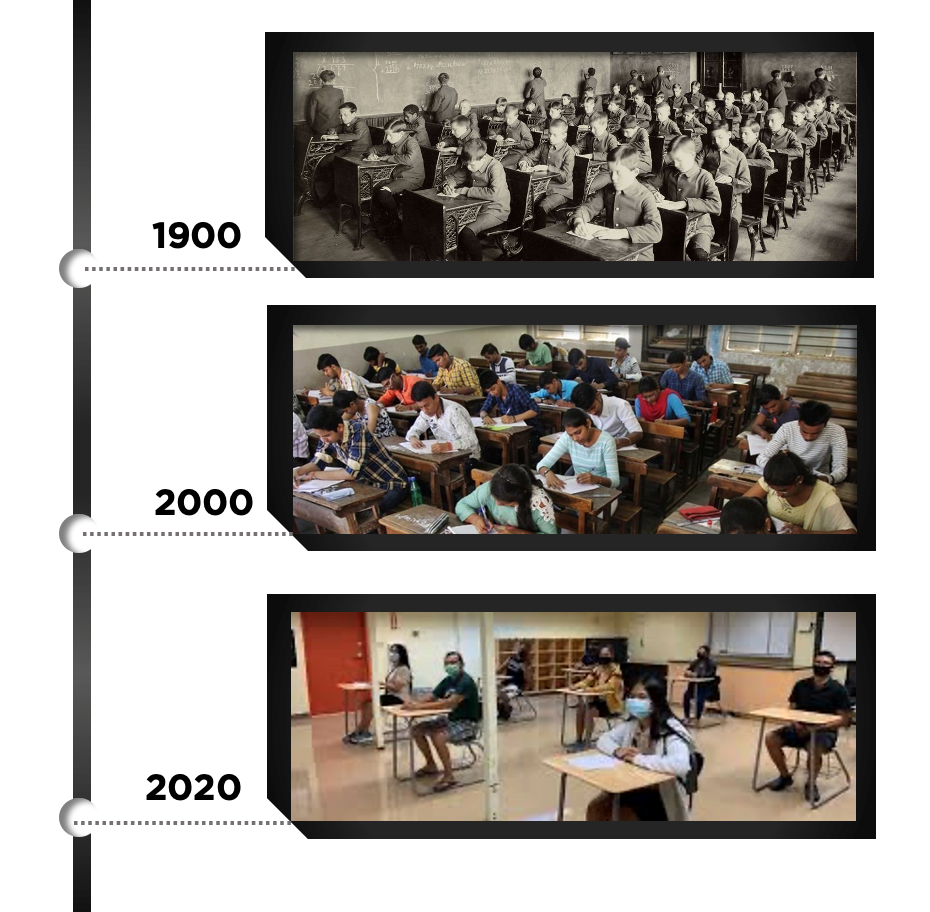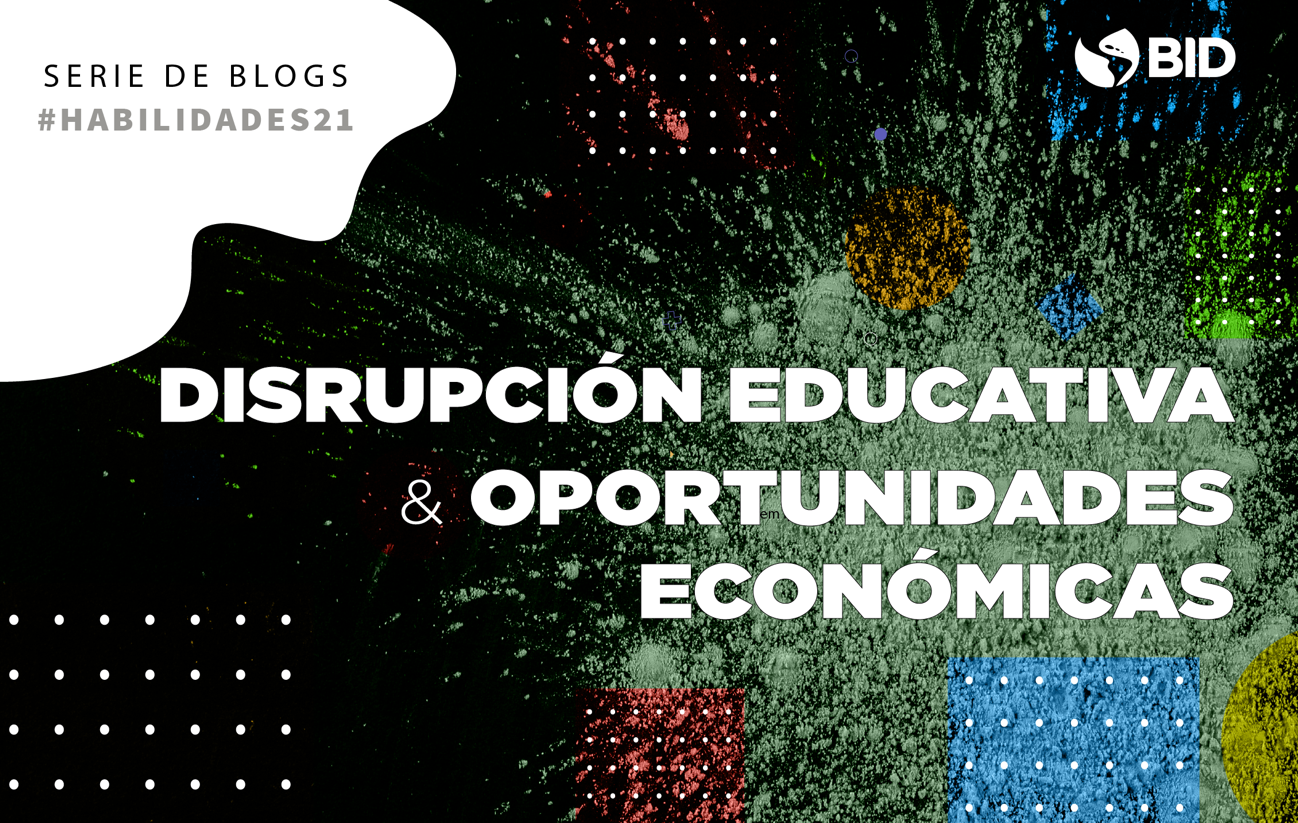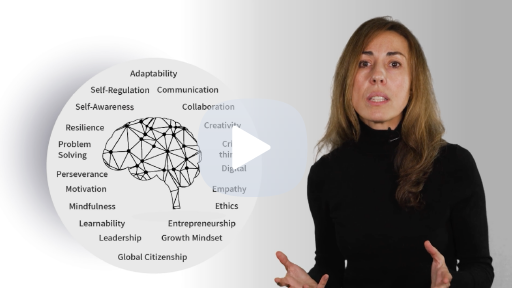Would you allow your child to be treated by a doctor using 19th-Century methods? Then, why is it OK to teach children using methods and techniques conceived more than a hundred years ago? It seems that the world we know today is considerably different from the world we knew starting 2020. It took a pandemic to figure out that we are in the 21st-Century, and the vast implications this has for education.
The Future has finally reached us. It is a future loaded with uncertainties and completely open to the impossible. Accelerated technological, migratory, demographic, and environmental changes are reshaping the social, economic, and political order. We need to prepare students to face this new world: to deal with uncertainty (COVID-19 has been a shocking example of this uncertainty); to live citizenship more consciously; to compete in the labor market, and -ultimately- to grow and achieve higher levels of well-being.
So, where are we? Are current education systems ready for this challenge? Unfortunately, education today is not that different from education in 1900. The way we are educating people has not changed as dramatically as our environment. As a result, our education systems are preparing our kids for a world that doesn´t exist anymore.

The system falls apart, particularly, in the connection between education and employment and economic opportunities. Automation is opening an incredible number of possibilities we cannot imagine yet. And new opportunities also come at the cost of living with uncertainties. We discover something different almost every day, which will eventually lead to a whole new array of occupations.
Current trends indicate that the labor market is becoming increasingly polarized: on one side, we have the “low-payed” occupations that require manual labor and the ability to work with people (e.g., professionals taking care of children, elderly, or people with disabilities; bartenders, hairdressers, etc.). At the other end of the spectrum, we find those “high-payed” occupations that require higher-order cognitive functions (critical thinking, leadership, etc.), and highly specialized technical skills. And the jobs that were in the middle before, are in the process of disappearing and being taken up by machines: Data Entry Clerks, Administrative and Executive Secretaries, Accountants and Auditors or Factory Workers are some of the examples mentioned in the last World Economic Forum’s The Future of Jobs Report 2020.
Despite these facts and figures, education systems prepare our kids and youth for yesterday’s and -in the best-case scenario- for today’s jobs, but not for tomorrow’s jobs.
What’s the point of sitting 30 students in front of a teacher reciting and memorizing never-changing facts from an old textbook? If we want to create human-shaped robots, executing undisputed orders, that’s the way to go. But it would be senseless in a world where real robots and artificial intelligence surrounds us everywhere and have proven to be much better than ourselves in performing specialized, repetitive, and predictive work; accumulating information and data; and complying with instructions. We are real humans: we can feel and use our emotions to solve problems, to think of new ideas. We can interconnect things that have not been linked before and face situations that could not be predicted. Those things make us humans, and we should focus on them. Otherwise, we will produce second-class robots instead of first-class humans. And that is what our education systems are doing right now.
The obvious question that follows is “why.” Why would anybody spend 12 years in an education program that does not give them the tools they need to find a job and have a good and fulfilling life? The answer is quite simple: they are not. Disconnection, lack of interest and motivation, and low relevance of learning make students abandon their learning paths or look up other alternatives: certifications, micro-credentials, nano-degrees, digital badges, or boot camps in different topics, from programming to data analytics. The fact that they move into other alternatives is not a bad thing in itself. Rather, on the contrary, it is a sign of new opportunities emerging out there. What is problematic is the number of students that we are leaving behind: those that will never get back on track, find alternatives, or, if they do, will think it is too late for them to start learning again.
While traditional education systems are still awakening to this new reality, a growing market of educational alternatives that respond to the needs of companies and young people searching for economic opportunities is waiting. Will this be the coup de grace to our formal education as we once knew it? Or will this be the final push to a real learning revolution? For the moment, there are private entrepreneurs and some teachers and schools that- with their individual initiatives- are trying very hard to provide students with a new education system and who are the ‘game-changers’. They have become the trigger that could unchain a real and long-overdue transformation in education.
How can we prepare students in Latin America and the Caribbean for the jobs that will exist in the future? Leave us your comments in the section below or on Twitter mentioning @BIDeducación #EnfoqueEducación.
Stay tuned and follow our blog series on education, economic opportunities and #skills21. Download the Future is now and keep an eye out for our news!
This series about Education 2030 is based on a keynote speech by Mercedes Mateo at HundrED Summit. HundrED –a not-for-profit organization that seeks and shares inspiring innovations in K12 education- is a member of the 21st Century Skills Coalition joined by different public and private organizations to promote the development of 21st-century skills in Latin America and the Caribbean.




Leave a Reply